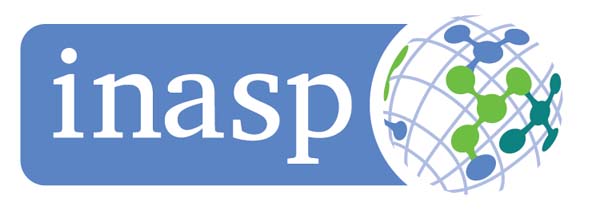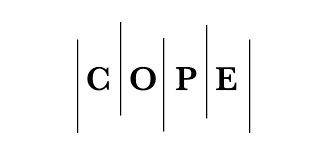Develop Whale Optimization Algorithm(WOA) In Genetic Method To Predict the Optimal Treatment for Diseases
DOI:
https://doi.org/10.29304/jqcsm.2024.16.41792Keywords:
Hug data, Machine learning, Prediction, Genetic algorithms.Abstract
Recently, a greater emphasis in research is on the targeting the parameters responsible for the spread of diseases, particularly in managing the complexities of large datasets related to disease information One of the major problems is trying to attain a high level of precision because some data sets in big data can be incomplete. The scope of this research involves advanced learning systems to formulate a system which provides best course of action against treatment recommends of any disease. Among other approaches, dealing with the missing data points and regularization of disease databases are included. The Whale Optimization Algorithm (WOA) will be developed to enhance predictions of effective treatments for diseases, utilizing genetic algorithms, which have unique features that set them apart from other methods. The results of the proposed approach showed significant improvement in predicting the appropriate treatment for diseases, compared to earlier results obtained with the WOA algorithm before its enhancement. The new method demonstrated higher accuracy reaching 98%.
Downloads
References
- N. H. Lameire et al., “Harmonizing acute and chronic kidney disease definition and classification: report of a Kidney Disease: Improving Global Outcomes (KDIGO) Consensus Conference,” Kidney International, vol.100,no.3,pp.516–526,Sep.2021, doi: https://doi.org/10.1016/j.kint.2021.06.028.
- E. Anderson and J. L. Durstine, “Physical activity, exercise, and Chronic diseases: a Brief Review,” Sports Medicine and Health Science, vol. 1, no. 1, pp. 3–10, Sep. 2019, doi:https://doi.org/10.1016/j.smhs.2019.08.006.
- S. Sagiroglu and D. Sinanc, “Big data: a Review,” 2013 International Conference on Collaboration Technologies and Systems (CTS), pp. 42–47, May 2013, doi: https://doi.org/10.1109/cts.2013.6567202.
- Ngiam, K. Y., & Khor, W.,” Big data and machine learning algorithms for health-care delivery” The Lancet
Oncology,20(5),e262-e273.Article(CrossRefLink)
- F. P. S. Surbakti, W. Wang, M. Indulska, and S. Sadiq, “Factors influencing effective use of big data: A research
framework,” Information & Management, vol. 57, no. 1, p. 103146, Feb. 2019, doi: https://doi.org/10.1016/j.im.2019.02.001.
- R. Iqbal, F. Doctor, B. More, S. Mahmud, and U. Yousuf, “Big data analytics: Computational intelligence techniques and application areas,” Technological Forecasting and Social Change, vol. 153, p. 119253, Apr. 2018,doi:https://doi.org/10.1016/j.techfore.2018.03.024.
- G. Carleo et al., “Machine learning and the physical sciences,” Reviews of Modern Physics, vol. 91, no. 4, Dec. 2019,doi:https://doi.org/10.1103/revmodphys.91.045002.
- P. Mehta et al., “A high-bias, low-variance introduction to Machine Learning for physicists,” Physics Reports,
vol. 810, pp. 1–124, May 2019, doi: https://doi.org/10.1016/j.physrep.2019.03.001.
- M. I. Jordan and T. M. Mitchell, “Machine learning: Trends, perspectives, and prospects,” Science, vol. 349, no. 6245, pp. 255–260, Jul. 2020, doi: https://doi.org/10.1126/science.aaa8415.
- J. E. van Engelen and H. H. Hoos, “A Survey on semi-supervised Learning,” Machine Learning, vol. 109, Nov. 2019, doi: https://doi.org/10.1007/s10994-019-05855-6.
- Y. Matsuo et al., “Deep learning, reinforcement learning, and world models,” Neural Networks, Apr. 2022, doi: https://doi.org/10.1016/j.neunet.2022.03.037.
- S. Sun, Z. Cao, H. Zhu, and J. Zhao, “A Survey of Optimization Methods From a Machine Learning
Perspective,” IEEE Transactions on Cybernetics, vol. 50, no. 8, pp. 3668–3681, Aug. 2020, doi: https://doi.org/10.1109/tcyb.2019.2950779.
- J. R. R. A. Martins and A. Ning, Engineering Design Optimization. Cambridge University Press, 2021. Accessed: Jul. 31, 2024. [Online]. Available: https://books.google.iq/books?hl=en&lr=&id=dBVEEAAAQBAJ&oi=fnd&pg=PR13&dq=%5B13%5D%09 Martins.
- M. Prosperi et al., “Causal inference and counterfactual prediction in machine learning for actionable healthcare,” Nature Machine Intelligence, vol. 2, no. 7, pp. 369–375, Jul. 2020, doi:https://doi.org/10.1038/s42256-020-0197-y.
- W. Ben Chaabene, M. Flah, and M. L. Nehdi, “Machine learning prediction of mechanical properties of concrete: Critical review,” Construction and Building Materials, vol. 260, p. 119889, Nov. 2020, doi:https://doi.org/10.1016/j.conbuildmat.2020.119889.
- S. N. Abed, “Predicting the Optimal Treatment for Diseases Using the Genetic Method by Develop (PSO)
Optimization Technique,” Journal of Al-Qadisiyah for Computer Science and Mathematics, vol. 16, no. 2, Jul. 2024, doi: https://doi.org/10.29304/jqcsm.2024.16.21545.
- A. Mostafa, Aboul Ella Hassanien, M. Houseni, and H. A. Hefny, “Liver segmentation in MRI images based
on whale optimization algorithm,” Multimedia Tools and Applications, vol. 76, no. 23, pp. 24931–24954, Apr. 2017, doi: https://doi.org/10.1007/s11042-017-4638-5.
- S. Mahmood, N. Z. Bawany, and M. R. Tanweer, “A comprehensive survey of whale optimization algorithm: modifications and classification,” Indonesian Journal of Electrical Engineering and Computer Science, vol. 29, no. 2, p. 899, Feb. 2023, doi: https://doi.org/10.11591/ijeecs.v29.i2.pp899-910.
- M. H. Nadimi-Shahraki, H. Zamani, Zahra Asghari Varzaneh, and Seyedali Mirjalili, “A Systematic Review of the Whale Optimization Algorithm: Theoretical Foundation, Improvements, and Hybridizations,” Archives of Computational Methods in Engineering, May 2023, doi: https://doi.org/10.1007/s11831-023-09928-7
- P. L. Tyack, “Social Organization of Baleen Whales,” pp. 147–175, Jan. 2022, doi: https://doi.org/10.1007/978-3-030-98449-6_7
- J.-O. Meynecke et al., “The Role of Environmental Drivers in Humpback Whale Distribution, Movement and Behavior: A Review,” Frontiers in Marine Science, vol. 8, Nov. 2021, doi:https://doi.org/10.3389/fmars.2021.720774.
- Zuhal Adel Madlool1, Sudad Najim Abed2 , “Predicting the Optimal Treatment for Diseases Using Whale Optimization Algorithm”, Wasit Journal of Computer and Mathematics Science Journal, doi: https://doi.org/10.31185/wjcms.273
Downloads
Published
How to Cite
Issue
Section
License
Copyright (c) 2025 Zuhal Adil Madlool

This work is licensed under a Creative Commons Attribution-NonCommercial-NoDerivatives 4.0 International License.













